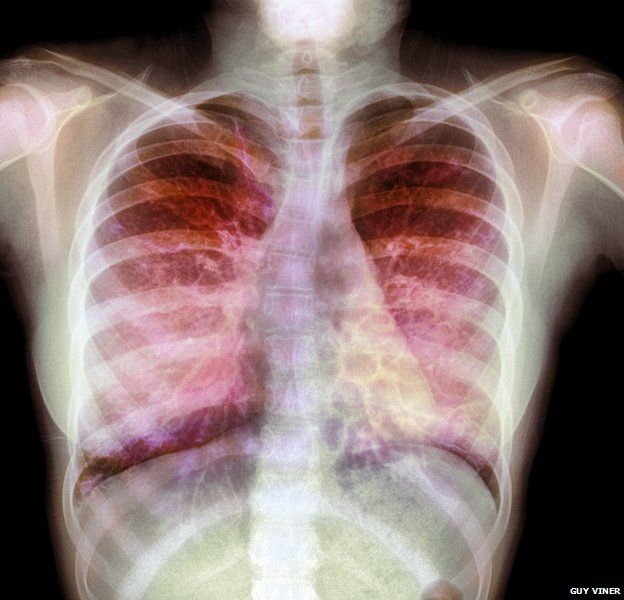
A gene therapy has stabilised and slightly improved cystic fibrosis in some of 136 patients in a trial.
Their lungs showed no decline, on average, after they inhaled healthy copies of the gene that causes CF once a month for a year, results published in Lancet Respiratory Medicine show.
And the lungs most clogged before the trial showed a 3% improvement.
A gene therapy has stabilised and slightly improved cystic fibrosis in some of 136 patients in a trial.
Their lungs showed no decline, on average, after they inhaled healthy copies of the gene that causes CF once a month for a year, results published in Lancet Respiratory Medicine show.
And the lungs most clogged before the trial showed a 3% improvement.
The lungs of patients that did not take the gene therapy showed a decline of 3-4% on average over the same period.
Prof Eric Alton, of Imperial College London, who led the trial, warned: "The effect is modest and it is variable. It is not ready to go straight into the clinic yet."
Prof Alton and his colleagues at the UK Cystic Fibrosis Gene Therapy consortium, which includes scientists at Edinburgh and Oxford Universities as well as Imperial, are hoping to have a further trial next year.
Cystic fibrosis is an inherited condition caused by a faulty gene that leads to a build up of sticky mucus causing debilitating infections in the nose, throat and lungs.
Patients' average life expectancy is 41.
Kieran Kelly, who usually takes about 40 pills, injections and inhaled medicines throughout the day, was among those taking part in the trial.
He told BBC News: "I did feel a lot healthier. It might have been psychological, but I did feel better in myself.
"You have to live every day that you have," he added. "You have to be as positive as you can, just live your life and enjoy it."
Nadia Lloyd lives with Mr Kelly in Brighton, and they are planning to marry later this month.
She said: "You have to be quite hopeful. When we first met [nine years ago], the average life expectancy was 28.
"So every time you see medical developments, it is always so encouraging".
But they both know the new gene therapy probably will not be ready in time to help Mr Kelly.
"The chances are that it will have an effect on anyone taking part in the trials are quite slim," he said. "It would be great if it does."
But Miss Lloyd said he had already benefited from drugs developed as a result of other people taking part in previous trials.
She added: "What Kieran is doing could help so many people in the future. I am very proud of him."
Further studies

An X-ray of a Cystic Fibrosis patient. The lungs are filled with mucus
Prof Stuart Elborn, of Queen's University in Belfast, said the results were "encouraging" but the therapy had been no more effective than some of the drugs currently available.
And he called for more small-scale tests to see if a larger dose would be more effective.
"If I was on the board of a pharmaceutical company, I would require further studies to determine the best dose and whether the current treatment could be combined with other drugs to increase the effect," he said.
"It is too soon to proceed with larger phase-three trials costing many millions".
Cystic Fibrosis Trust chief executive Ed Owen said: "The advantage of gene therapy is that it attacks the basic defect of cystic fibrosis and that has the potential to reduce the daily routine of drugs that those with cystic fibrosis endure each day and (offers the possibility) of long-term improvement to transform their lives".

 Previous page
Previous page Back to top
Back to top







